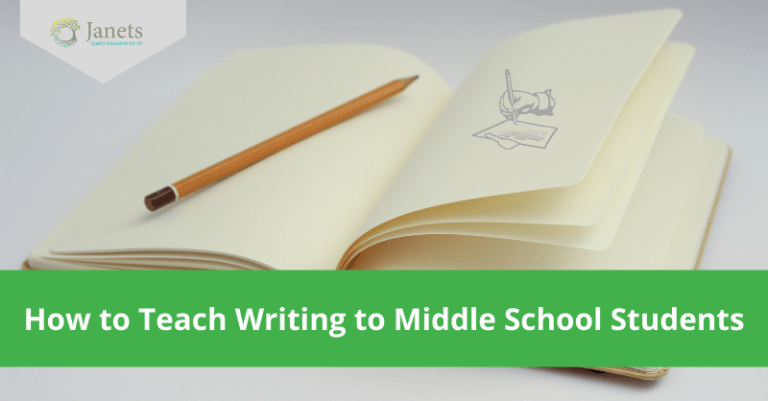Middle schoolers seldom have problems with creativity and search for inspiration. They can be full of ideas but lack the writing skills to express them. That is why it is essential to find methods that can help them turn ideas and thoughts into meaningful and worthy texts. Professional academic writers from a custom essay writing service give the most efficient ways that will help to teach students writing in middle schools.
Let Them Write about Their Environment
Students often have to describe things they have never seen, smelled, touched, heard, tasted, and felt. They struggle trying to pick up the words and compose a decent paper that has the required number of paragraphs, pages, or words. If students are bad at writing, it will be an excellent idea to let them write about things they are aware of. First travel abroad, Covid vaccination, first love, things they hate or love to do in summer, death of the closest relatives fit the purpose.
Such a method allows teachers to learn more about their students as individuals. It also provides a positive effect on students who cannot afford a psychologist but want to get off their chest.
Encourage After-Class Discussions
Some students feel shy when expressing personal opinions to a teacher. So, it might be better to let students write about literary works, events, and other things in group chats, Facebook or Twitter posts, and comments. It is a great chance to let them go in discussions, argumentation, analyses, and interpretations. A teacher can guide them by providing a subject of the discussion. It can be a book, an event, a theory, a discovery, etc. Tutors should not read chats without students’ permission to let them write freely to cope with writing blocks.
Written Papers for the Discussion of Problems
Classmates often quarrel. Sometimes the reason for that is silly, like chewing gum in the hair or the turn to clean the blackboard. Nevertheless, some situations cannot be solved easily.
Recreational writing might be very helpful. For instance, students can discuss the humiliation of girls through journals. Boys can explain their reasons while girls can express their feelings, worries, and wishes. Such self-expression will lead to a compromise and better understanding of each other and gender equality.
Inspire Them on Becoming Writers
Students read a lot. They read while researching and get acquainted with masterpieces. Teachers can ask them to write dialogues in groups to continue some work.

For example, they may try to write dialogues for the characters of the Hunger Games. Everybody remembers the final scene. What about the next generation? What new challenges might they face? Students can create dialogues for kids who learn the history of 12 districts and survival games. Were they such a necessity? Were there positive moments or only negative ones? Teachers should let students read their dialogues aloud to make other students agree, disagree, or correct something.
Search for Poetical Words
Another creative assignment is to search for words that might be helpful in the creation of poetry. A teacher can find poems of unknown authors and erase some words and sentences. The student’s task is to fill in the gaps, but preserve rhythm and rhyme. It guarantees the enlargement of vocabulary and active use of new words that are not in habitual language.
Reflection on Writing
Students should write and then analyze their writing. Students like to criticize others, so self-criticism is the best way to develop writing skills. Another option is to create pairs and ask them to check papers of each other. The only rule is to discuss each other’s papers without offense. Besides, a teacher should provide a sample of a good analysis.
Ask Them to Answer Basic Questions about Routine
Who? Where? When? These three questions let a person start writing. For example, ‘I went home yesterday. Afterward, a student should add more details like why did you go home? Where is your home? Why did you go alone or with someone? A student must ask more questions and answer giving more details. Adjectives, synonyms, paraphrasing, and other literary tools will help to do that on the required level.
Whose Story Is That?
School children spend their holidays differently. They can help their parents, play with other kids, visit their grandparents, travel, and enjoy their hobbies. The task of a teacher is to ask five or six students about their weekends. The next step is to create headings and write them on a blackboard. Students should enter the classroom and try to guess the whole story. The students whose stories were introduced should retell things they did on their weekend once again.
Thanks to that, both will develop oral speech that will later turn into a written story. As for the homework, a teacher can ask children to write an essay about things they have heard in the lesson.
Real vs Unreal Purpose
Students associate the word ‘imagine’ with things they are not aware of. So, when they get the task ‘imagine that you are…’ they will probably search for samples on the Internet or try to be someone else instead of using their thoughts and ideas. Isn’t it better to create a real-life situation to let students respond to things that happen around them?
Compare, ‘Please, write a letter to the local government and ask its representatives to budget your school performance. You should sound convincing and provide enough arguments’ and ‘Imagine that you are a drama critic and your task is to evaluate your school performance’. The first assignment replaces an unreal purpose with the real one. It makes the assignment more valuable and achievable for students who struggle with writing.
Involve Members of a Family
Students might get tired of regular classes. New assignments raise their interest in learning. Teachers can ask adults to help them. It is a good idea to ask a mother and her child to read a story and discuss it. Afterward, they need to sit separately and write a review or an essay on the main topic of the story. They need to send them to a teacher who will read them and tell them the differences and similarities. Except for writing, children will spend more time with their dearest parents, grandparents, and other members of the family.
Describe Instead of Telling
The problem with kids is that they cannot describe the event or experience. They just retell. The task of a teacher is to teach them how to put emotions into words. It is necessary to make them use five senses which kids get through their skin, eyes, tongue, nose, and ears. One should learn words to describe their feelings and emotions concerning everything that surrounds them. The emotionless and objective description fits definition essays and alike writing. Other papers require personal emotions but not everyone can do that qualitatively.
Write to Foreigners for Cultural Exchange
Isn’t it interesting to learn how school children from other countries live, study, and cope with distance learning? There are numerous websites that allow international chatting. Students can exchange emails and report about their experiences in essays and group discussions. That is a good opportunity to broaden their outlook and find new topics for reflection.
Experiment with the Sentence Length
Each text is to be readable. A sequence of short or long sentences complicates it. People got used to speaking using brief expressions but prefer complex sentences when describing something being overwhelmed. That is why a student should try to mix long and short sentences. The best option is to have them one by one: long- short -long. Nevertheless, it is not so easy. So, one should practice. Moreover, students can use the Hemingway app to get an idea about things that complicate reading.
Active Instead of Passive
Colleges and universities ask students to prefer active voice to passive voice. Passive voice is often misleading, and a reader finds it more difficult to comprehend. Consequently, teachers must put emphasis on active verbs. Nobody diminishes the importance of grammar. Students must know both active and passive constructions, though active ones should prevail.
More Unique Plays, Even not Perfect
Students should make up not only dialogs but small dramas as well. They must write about things that worry them and act them out. The topic could be jealousy, greediness, love, passion, hobbies, domestic violence, substance abuse, traveling, self-development, phobias, Internet dependence, illiteracy, poverty, etc. Even if plays or polylogues are not perfect, they will matter a lot for the development of writing skills in middle school students.
Examples
There are two types of the example technique. The first one is to show papers of good and bad writing. Students are to contrast them together with a tutor to see what to do and what not to do. Another variant is to post a piece of writing in Google Docs, on Twitter, or just to print it and pin it to the board in the classroom. Students should read it and think about whether it is good or not. If the sample is bad, they will need to improve it. To do that, a student should proofread the text and provide corrections, both lexical and grammar.
There are many ways to help teachers improve their student’s writing skills. One should depend on students and their distinctive features when trying to stimulate writing activities. Inspiration is a key to successful writing.





 LOGIN/Sign up
LOGIN/Sign up




